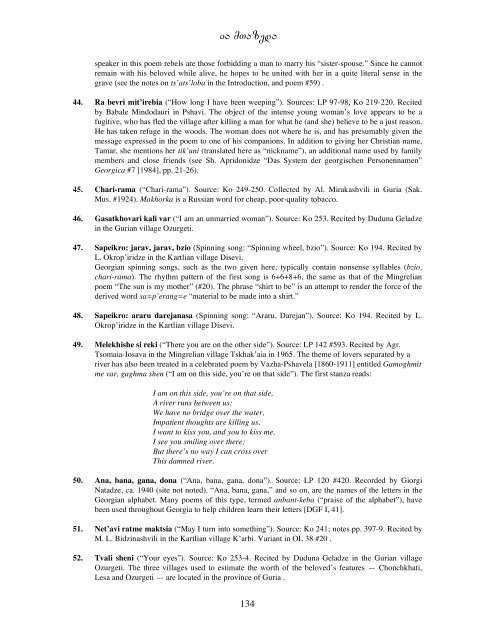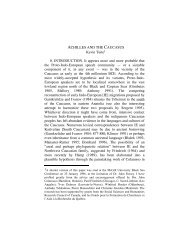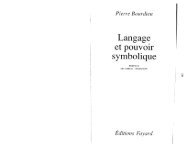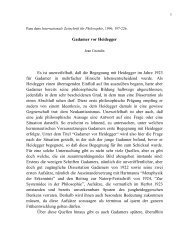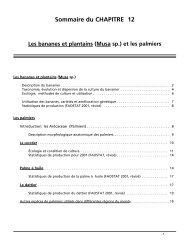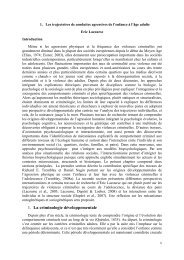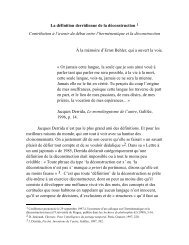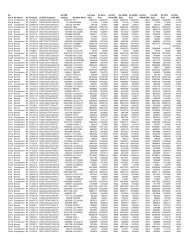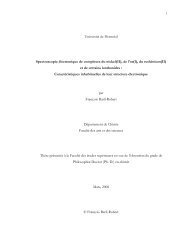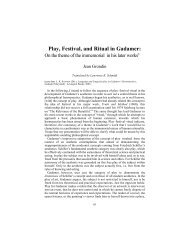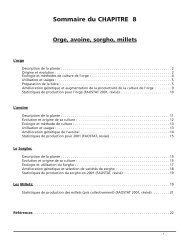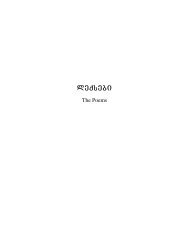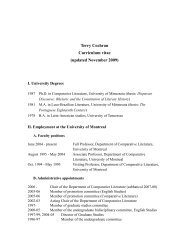You also want an ePaper? Increase the reach of your titles
YUMPU automatically turns print PDFs into web optimized ePapers that Google loves.
ia mtazeda<br />
speaker in this poem rebels are those forbidding a man to marry his “sister-spouse.” Since he cannot<br />
remain with his beloved while alive, he hopes to be united with her in a quite literal sense in the<br />
grave (see the notes on ts’ats’loba in the Introduction, and poem #59) .<br />
44. Ra bevri mit’irebia (“How long I have been weeping”). Sources: LP 97-98, Ko 219-220. Recited<br />
by Babale Mindodauri in Pshavi. The object of the intense young woman’s love appears to be a<br />
fugitive, who has fled the village after killing a man for what he (and she) believe to be a just reason.<br />
He has taken refuge in the woods. The woman does not where he is, and has presumably given the<br />
message expressed in the poem to one of his companions. In addition to giving her Christian name,<br />
Tamar, she mentions her tik’uni (translated here as “nickname”), an additional name used by family<br />
members and close friends (see Sh. Apridonidze “Das System der georgischen Personennamen”<br />
Georgica #7 [1984], pp. 21-26).<br />
45. Chari-rama (“Chari-rama”). Source: Ko 249-250. Collected by Al. Mirakashvili in Guria (Sak.<br />
Mus. #1924). Makhorka is a Russian word for cheap, poor-quality tobacco.<br />
46. Gasatkhovari kali var (“I am an unmarried woman”). Source: Ko 253. Recited by Duduna Geladze<br />
in the Gurian village Ozurgeti.<br />
47. Sapeikro: jarav, jarav, bzio (Spinning song: “Spinning wheel, bzio”). Source: Ko 194. Recited by<br />
L. Okrop’iridze in the Kartlian village Disevi.<br />
Georgian spinning songs, such as the two given here, typically contain nonsense syllables (bzio,<br />
chari-rama). The rhythm pattern of the first song is 6+6+8+6, the same as that of the Mingrelian<br />
poem “The sun is my mother” (#20). The phrase “shirt to be” is an attempt to render the force of the<br />
derived word sa=p’erang=e “material to be made into a shirt.”<br />
48. Sapeikro: araru darejanasa (Spinning song: “Araru, Darejan”). Source: Ko 194. Recited by L.<br />
Okrop’iridze in the Kartlian village Disevi.<br />
49. Melekhishe si reki (“There you are on the other side”). Source: LP 142 #593. Recited by Agr.<br />
Tsomaia-Iosava in the Mingrelian village Tskhak’aia in 1965. The theme of lovers separated by a<br />
river has also been treated in a celebrated poem by Vazha-Pshavela [1860-1911] entitled Gamoghmit<br />
me var, gaghma shen (“I am on this side, you’re on that side”). The first stanza reads:<br />
I am on this side, you’re on that side,<br />
A river runs between us;<br />
We have no bridge over the water,<br />
Impatient thoughts are killing us.<br />
I want to kiss you, and you to kiss me,<br />
I see you smiling over there;<br />
But there’s no way I can cross over<br />
This damned river.<br />
50. Ana, bana, gana, dona (“Ana, bana, gana, dona”). Source: LP 120 #420. Recorded by Giorgi<br />
Natadze, ca. 1940 (site not noted). “Ana, bana, gana,” and so on, are the names of the letters in the<br />
Georgian alphabet. Many poems of this type, termed anbant-keba (“praise of the alphabet”), have<br />
been used throughout Georgia to help children learn their letters [DGF I, 41].<br />
51. Net’avi ratme maktsia (“May I turn into something”). Source: Ko 241; notes pp. 397-9. Recited by<br />
M. L. Bidzinashvili in the Kartlian village K’arbi. Variant in OL 38 #20 .<br />
52. Tvali sheni (“Your eyes”). Source: Ko 253-4. Recited by Duduna Geladze in the Gurian village<br />
Ozurgeti. The three villages used to estimate the worth of the beloved’s features — Chonchkhati,<br />
Lesa and Ozurgeti — are located in the province of Guria .<br />
134


